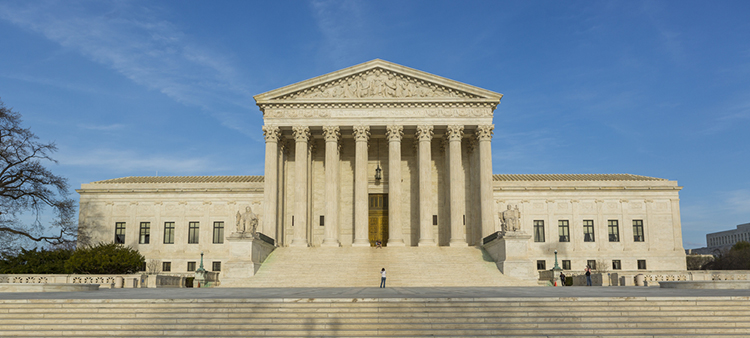SCOTUS agrees to hear case on Trump's latest travel ban

The U.S. Supreme Court has agreed to hear the federal government's appeal in Trump v. Hawaii, which addresses the White House’s attempt to restrict travel from six Muslim-majority nations.
In Trump v. Hawaii, the San Francisco-based 9th U.S. Circuit Court of Appeals in December found that Trump’s executive order regarding immigration exceeded the scope of his authority, the New York Times reports.
Opponents of the restriction argue that it discriminates based on religion, which is unconstitutional, BloombergPolitics reports. Justice Department attorneys argue that federal immigration laws give the president “sweeping authority” regarding restricting people from entering the United States, according to the article.
A week after taking office in 2017, Trump issued his first travel ban, which was blocked by various courts. He issued a second travel ban in March. It was also blocked by courts at the appellate level, but the U.S. Supreme Court in June allowed part of the ban to be implemented while it waited for cert petitions from the administration on two cases. Those petitions were dismissed in October.
However, in in December, the U.S. Supreme Court, in a 7-2 opinion, allowed the third version of the president’s travel ban to go into effect while Trump v. Hawaii and other immigration ban court challenges were pending, Reuters reports.
The travel ban restricts citizens from predominantly Muslim nations Iran, Libya, Syria, Yemen, Somalia and Chad; as well as North Korea and some officials from Venezuela from entering the United States, the New York Times reports.



